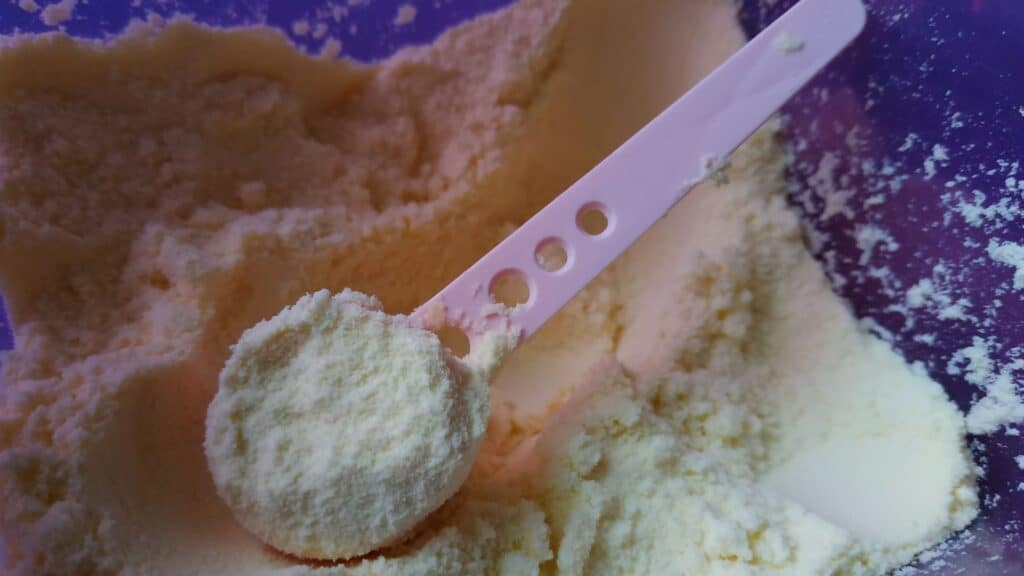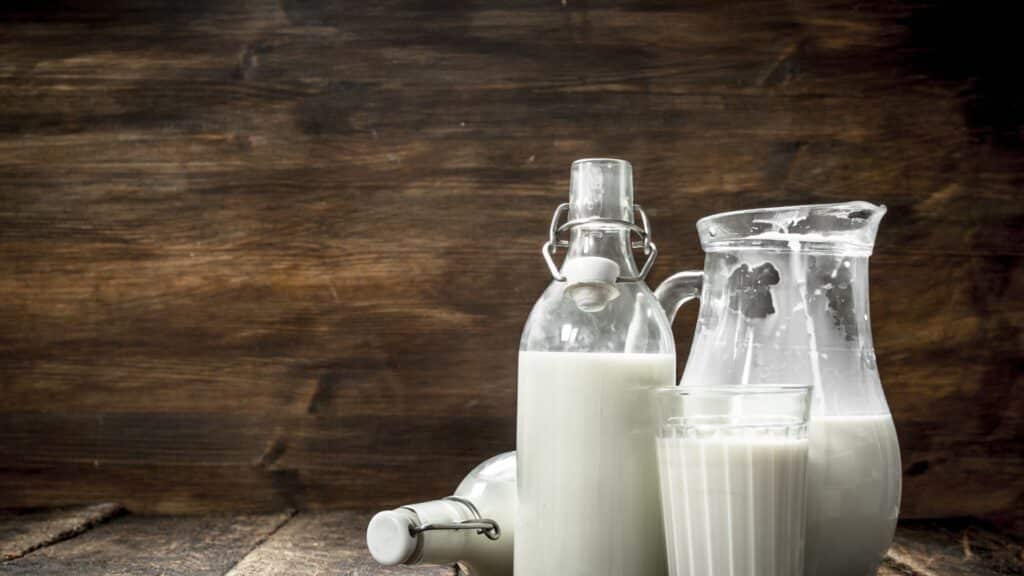Does your baby often have diarrhea after drinking a particular type of formula? Are they fussier or gassier than usual after drinking it?
If so, your baby may be allergic to the ingredients in that particular formula. Here’s how to tell if your baby is experiencing an allergic reaction and what you can do about it.

How Milk Allergies Affect Babies
Many parents may not be aware of it, but milk allergy is pretty common among children. At least 2 to 3 percent of toddlers below the age of three are exhibiting signs of an allergic reaction.
However, just because your growing kid shows signs of an allergic reaction doesn’t automatically mean they have a milk allergy. Sometimes it could mean lactose intolerance or they’ve developed a sensitive stomach for breast milk or infant formula.
If you see any signs of cow’s milk allergy or other types of food allergies, then it’s best to speak with your child’s doctor about it. They can help you determine the cause of your baby’s allergic reaction and other possible reasons that may be causing your child’s discomfort.
Although milk allergy or cow’s milk intolerance may seem challenging at first, most babies tend to outgrow it once they reach two to three months.
Signs of a Cow’s Milk Allergy
There are many telltale signs to help you determine whether or not your baby has cow’s milk allergy. Here are a few common symptoms of a milk allergy that you need to watch out for:
- Bloody stool or mucus in the stool
- Vomiting
- Loose bowel movement
- Excessive crying
- Constipation
- Abdominal Pain
- Excessive gassiness or spit up
Your child may also develop hives on the skin, which is often an allergic reaction to cow’s milk or baby formula. These skin rash types appear to be itchy, with raised bumps on the skin. If you notice any of these symptoms in your baby, it is essential to consult your pediatrician as soon as possible.
There are also instances when eczema may appear because of formula allergy, causing red, dry, or itchy skin to appear. In most cases, eczema can appear on the baby’s cheeks and scalps and on any part of the body.
If you notice that your child is becoming fussy or crying excessively after drinking cow’s milk, it’s best to talk to your baby’s doctor about it. Formula-fed babies may show milk allergy symptoms from days to weeks after switching to a new milk formula.

Signs of Cow’s Milk Allergy
- Skin reaction: Skin reaction may range from mild to severe and can include hives, itching, redness, and swelling of the face, lips, and around the eyes.
- Digestive issues: Digestive issues, also known as gastrointestinal symptoms, include cramping and pain in the abdomen, gas, vomiting, and diarrhea.
- Symptoms that resemble hay fever: These allergic reactions may range from runny or blocked nose.
There are also instances when milk allergy from cow’s milk protein can result in any type of severe reaction, such as swelling in the throat or mouth, difficulty breathing, or wheezing. But there are also cases when a child can develop life-threatening reactions like anaphylaxis. If you notice that your child has anaphylaxis, then immediately call an ambulance.
Proper Treatment for CMA
If your baby’s doctor diagnosed CMA, ask a few questions. This helps manage allergies to cow’s milk protein. One effective treatment your child’s doctor may suggest is a formula change. You may observe if your baby will show signs of milk allergy so that you can decide if you need to change your infant’s current baby formula or not. Meanwhile, formula-fed babies may consult the doctor to prescribe special infant formula to alleviate the milk allergy symptoms.
Signs of Lactose Intolerance
Lactose intolerance is another common type of adverse reaction to milk sugar. It usually happens when the body can’t properly digest lactose, a naturally occurring sugar commonly found in milk.
Unlike food allergies, lactose intolerance is temporary. It may last for only a matter of days or weeks. Symptoms involve the following:
- Vomiting
- Loose bowel movement
- Gassiness
- Stomach pain and rumbling
Proper Treatment for Formula Intolerance

Treating formula intolerance will depend on your child’s intolerance [1]. Some babies may need to switch to a different baby formula, while others may need an extensively hydrolyzed or amino acid-based formula.
Parents should consult their doctor when in doubt about what type of infant formula is best for their child. Your doctor can advise you on the most suitable brand and will also be able to prescribe special formulas that are specifically made to treat your baby’s food allergies.
What Causes Formula Intolerance?
Various aspects of a baby’s immune system can trigger different types of food allergies. Let’s take a closer look at a few of them:
Immunoglobulin (IgE) mediated food allergies: the baby’s immune system produces an allergic reaction when it comes in contact with specific proteins contained in the baby formula. It usually happens when the body commits an error when identifying the food proteins and the ones that make the IgE antibodies.
Non-IgE mediated food allergies: there are cases when the body doesn’t produce IgE antibodies to trigger food allergies in your baby’s diet. Also, difficulty breathing doesn’t occur with this type of intolerance. Instead, it primarily causes digestive problems such as diarrhea and skin problems.
Mixed IgE-mediated food allergy: this type of formula intolerance is a third category of formula allergy in which the body produces IgE antibodies that are only partially present. Thus, causing a more complex reaction in the immune system.
Treatment of Milk Allergies in Infants
Formula intolerance from milk protein and other types of food allergy can be avoided when you switch formulas. Hypoallergenic formulas can help if your baby has an IgE or non-IgE-mediated food allergy.
But, it is crucial to contact a healthcare professional before switching as these special baby formulas may have side effects. It is also important to note that soy and goat’s milk should not be used as they are common allergen triggers for infants.
Suppose your baby’s food allergy is IgE mediated. In that case, you may need to remove other potential allergens from their diet to reduce the risk of an allergic reaction and formula intolerance. When starting a hypoallergenic formula, it is important to keep breastfeeding or supplement with infant formulas that are specially designed for food allergies if needed.
Remember that food allergies are the most common reason people develop anaphylaxis, which can be a life-threatening allergic reaction, especially for babies. Milk is an easy ingredient

Conclusion
Milk formulas can be easily substituted by other types when needed. But if you must switch, it’s best to coordinate with your pediatrician.
Hypoallergenic formulas can help reduce the risk of an allergic reaction in babies, but it’s important to remember that food allergies are still a potential concern. Be sure to discuss any questions or concerns about food allergies and formula switching with your pediatrician.
We hope that this article helped you with your problem. If you have any questions or suggestions, don’t hesitate to leave a comment below!



